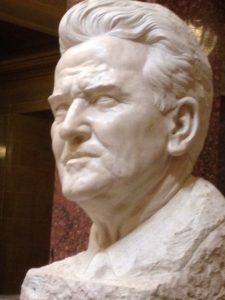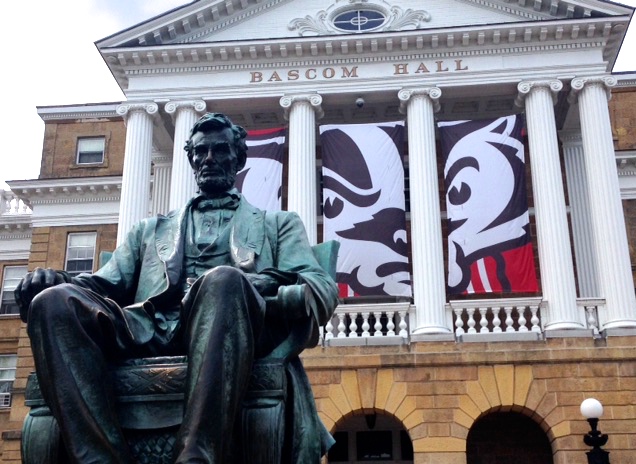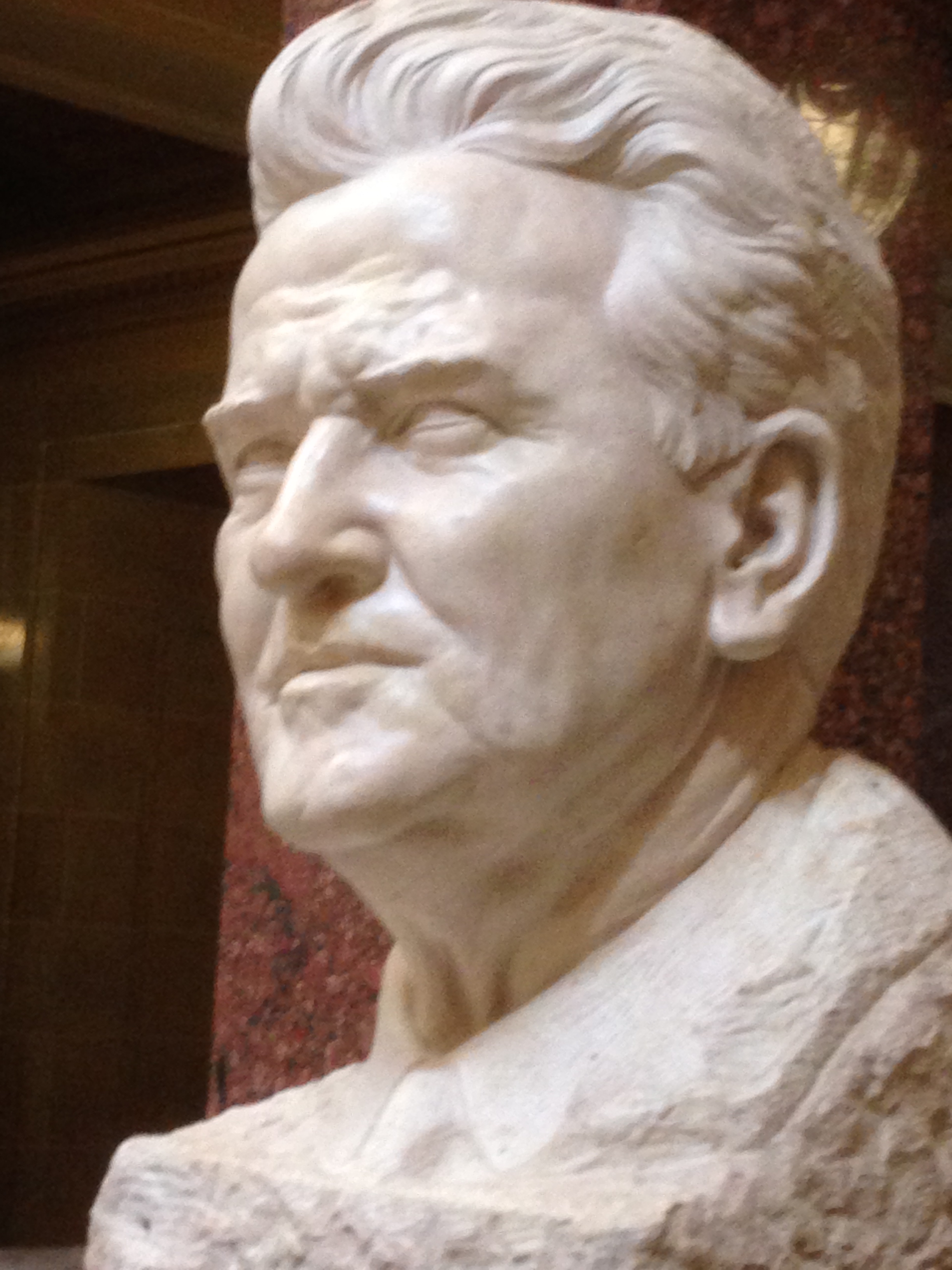
Statue of Robert “Fightng Bob” La Follette in the State Capitol.
By John Nichols
The Capital Times (11/11/18)
The explanation for why Tony Evers defeated Gov. Scott Walker in Tuesday’s election is not complicated.
Evers sought the governorship as a champion of the Wisconsin Idea.
This distinguished him from Walker, who in 2015 got caught trying to eliminate the state’s historic commitment to invest in higher education, research, science and public service.
The roots of the Wisconsin Idea go back to the beginning of the 20th century, when then-Gov. Robert M. La Follette and University of Wisconsin President Charles Van Hise embraced the principle that “the beneficent influence” of the great state University of Wisconsin would be put to work “for every family of the state.” This was a progressive premise, which was soon extended to mean that Wisconsin would rely on ideas and innovation to make real the promise of an equitable future.
Evers regularly spoke about the Wisconsin Idea and about renewing respect for research, science and the idea that state employees should be free to act in the public interest.
Walker and his allies rejected the Wisconsin Idea. At every turn, they sought to use the power of the state to reward their political donors and corporate collaborators. Three years ago, the governor provoked a statewide outcry when he released a budget that rewrote the UW System’s mission statement in a way that removed references to the Wisconsin Idea and replaced them with a charge to “meet the state’s workforce needs.” The governor’s proposal even deleted the phrase: “Basic to every purpose of the system is the search for truth.”
After he got caught, Walker backed off the specific proposal. But the fact is that his entire tenure as governor was an assault on the Wisconsin Idea as it has been been understood by generations of Wisconsinites.
Tony Evers, who as state superintendent of public instruction and as a member of the UW Board of Regents fought lonely battles against Walker’s abuses, recognized the danger of the governor’s many assaults on independent inquiry and the pursuit of honest answers to challenges facing the state.
During the course of what many saw as an unlikely challenge to the incumbent governor, Evers regularly spoke about the Wisconsin Idea and …
The Wisconsin Idea…

“A learning environment in which faculty, staff and students can discover, examine critically, preserve and transmit the knowledge, wisdom and values that will help ensure the survival of this and future generations and improve the quality of life for all. The university seeks to help students to develop an understanding and appreciation for the complex cultural and physical worlds in which they live and to realize their highest potential of intellectual, physical and human development.”
*****
- Learn More About “Fighting Bob” La Follette & His Legacy Of Progressive Leadership — Born in Dane County’s Primrose township, La Follette worked as a farm laborer before enrolling at the University of Wisconsin. After his graduation, he ran successfully for district attorney. In 1884, he was elected to Congress as a Republican. After an electoral defeat in 1890 he returned to Wisconsin. Philetus Sawyer, a leading state Republican, offered La Follette a bribe to fix a court case against several former state officials. La Follette not only refused the bribe, but took the opportunity to publicly decry the corrosive effect of money in democratic politics. The incident lit a spark, and La Follette spent the next ten years touring Wisconsin denouncing the political influence of the railroad and lumber barons who dominated his own party. In 1900, he ran for governor on a pledge to clean up the corruption. He gave 208 speeches in sixty-one counties—sometimes ten or fifteen a day—and won handily. … Read the Rest
(Commoner Call photos by Mark L. Taylor, 2018. Open source ad free for non-derivative use with link to www.thecommonercall.org )

